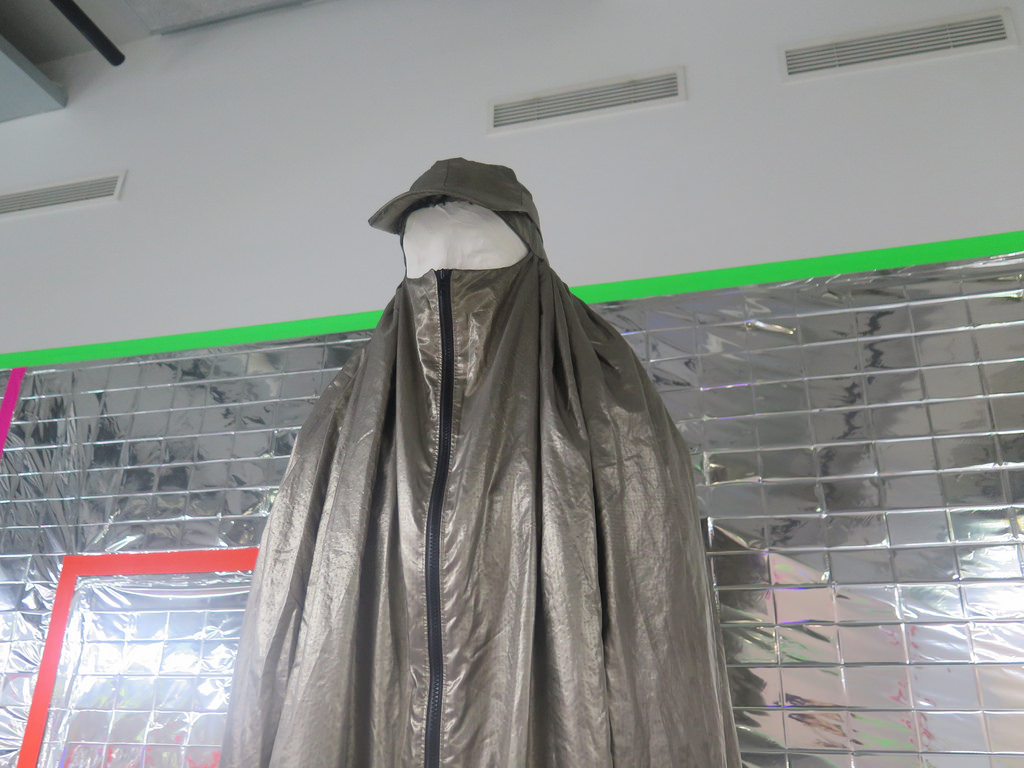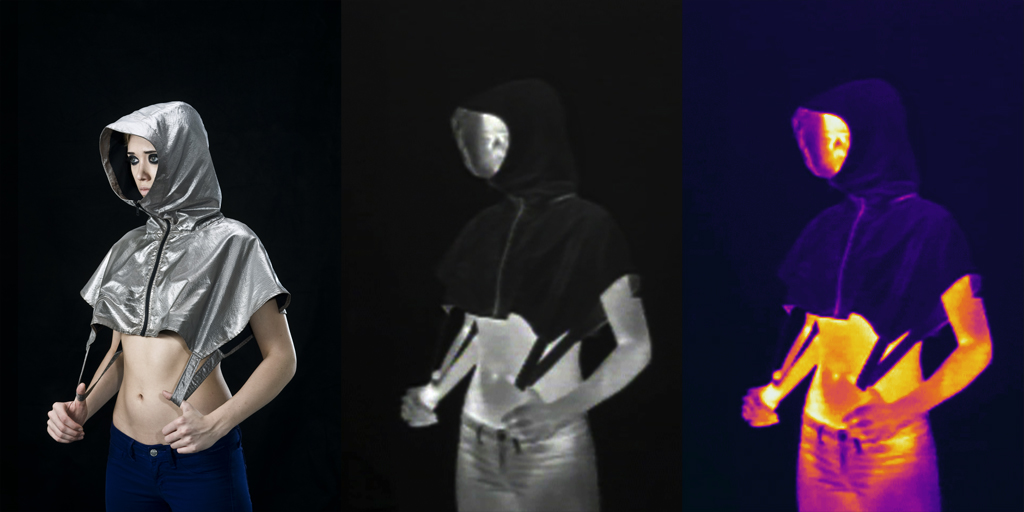While in Paris a few weeks ago, i visited Extra Fantômes. The real, the fake, the uncertain, an exhibition at La Gaîté Lyrique that explores the interweaving of the technological and the uncanny.
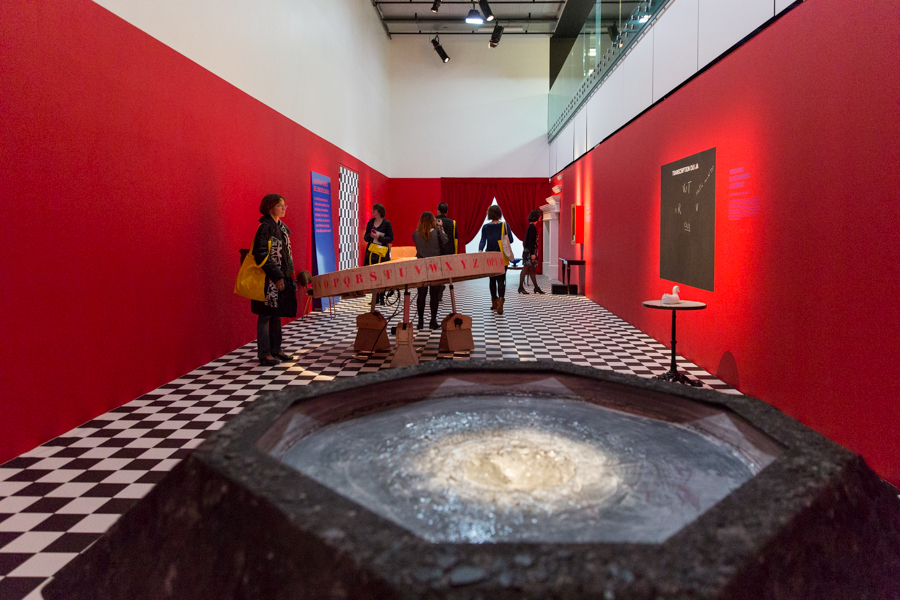
Extra Fantômes. View of the exhibition space at Gaîté Lyrique. Photo: © Vinciane Verguethen/voyez-vous
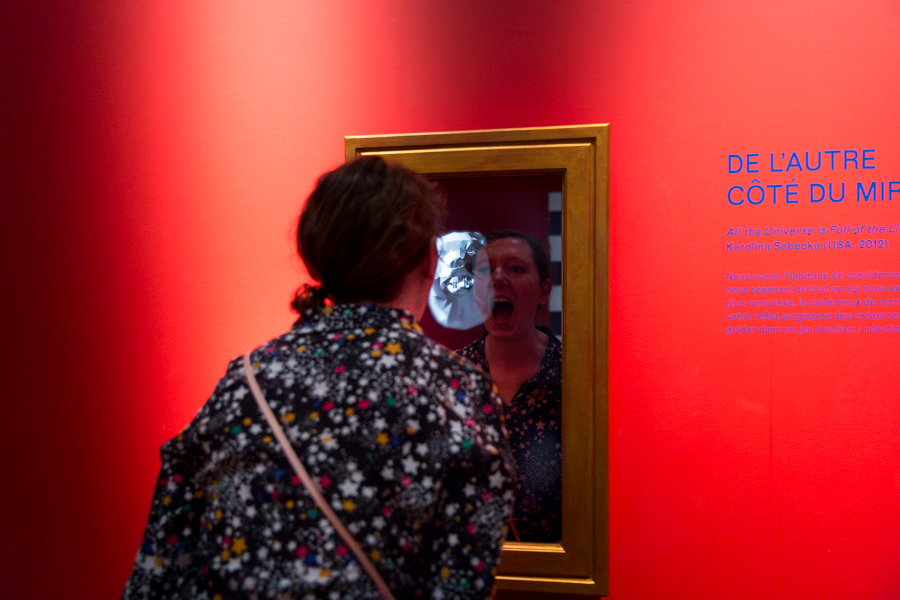
Karolina Sobecka, All the Universe is Full of the Lives of Perfect Creatures. Exhibition view at Gaîté Lyrique. Photo: © Vinciane Verguethen/voyez-vous
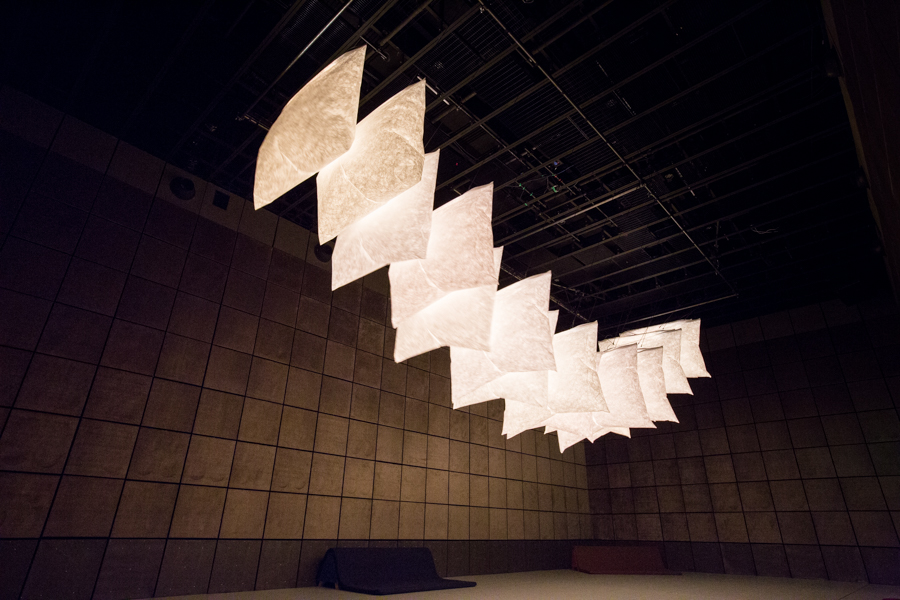
Nils Völker, Seventeen, 2016. Extra Fantômes, exhibition view. Photo © vinciane verguethen/voyez-vous
I thought it would be a light and amusing way to fill a rainy afternoon. And amusing it certainly was. At least at the start of the exhibition, when you find yourself plunged inside dark spaces and Lynch-inspired red room dedicated to the occult. There is a Oui Ja table, a mirror haunted by animals, a phone that puts you in contact with ghosts, a clique of translucent cushions that breathe over your heads. But the exhibition goes way beyond the mystical and the supernatural…
In a world where scientific rationalism rules, interest is on the rise for alternative forms of relating to the world and to others.
The exponential development of technology is paradoxically a time there is a surge in attention and demand for magical, unexplained and mythological phenomena.
After the first two rooms of fun and phantasms, the ride gets darker and the paranormal gets worryingly normal. The specters, spirits and impersonators become pervasive, intrusive, you can ignore them if you so wish but you can’t hide from them. They are made of the data we generate. They are our disembodied doppelgängers, our digital shadow and they relentlessly shed information about our opinions, routines, sexual preferences and working habits. Unsurprisingly, these last few rooms were the ones where i spent the longest time.
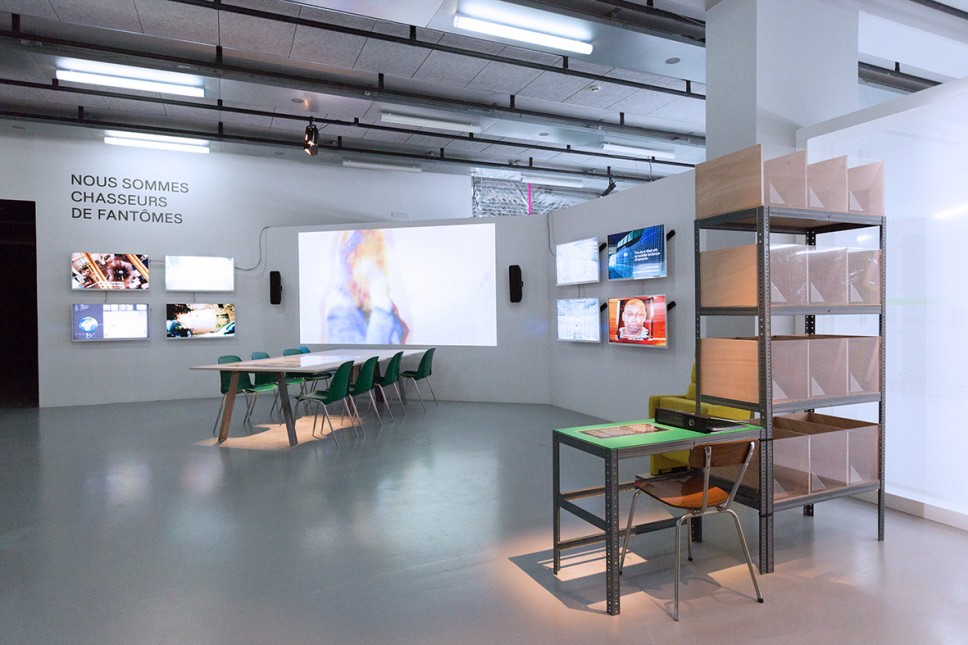
Extra Fantômes. View of the exhibition space at Gaîté Lyrique. Photo: © Vinciane Verguethen/voyez-vous
The first one presents itself like a Control Room that enables the visitors to discover the immaterial energies and invisible forces that inhabit the same spaces as us. These forces are not esoteric anymore. They are real, they are the ones that inevitably accompany our technology-mediated existence.
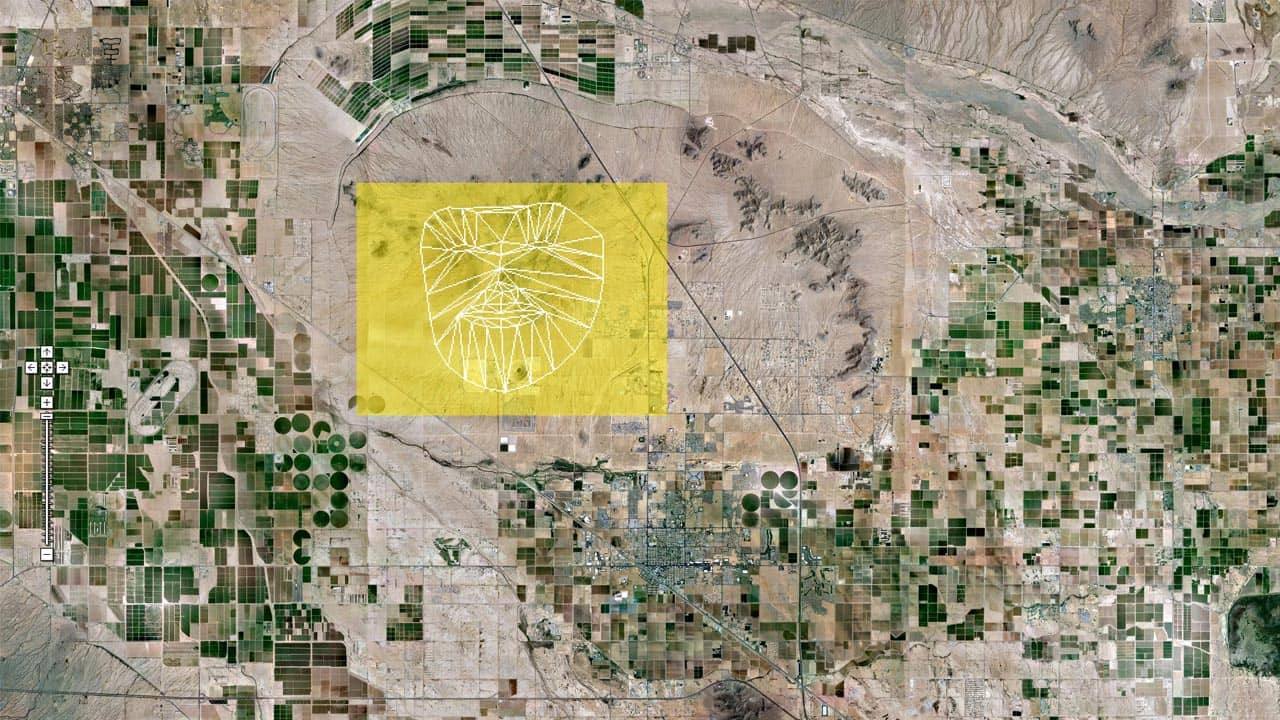
onformative, Google Faces, 2013
onformative, Google Faces – Google Earth Flight Animation
Google Faces was my favourite piece in the room because of the way it ties up the uncanny atmosphere of the previous rooms with the reality of the current technological world.
Google Faces tirelessly travels through Google Maps’s satellite images and uses a face detection algorithm to detect portraits hidden in the topography of our planet. The images would look nothing like faces were it not for pareidolia, a psychological phenomenon wherein the mind perceives a familiar pattern of a face, animal, object, message or other where none actually exists. “Unprejudiced” technology meets human subjectivity.
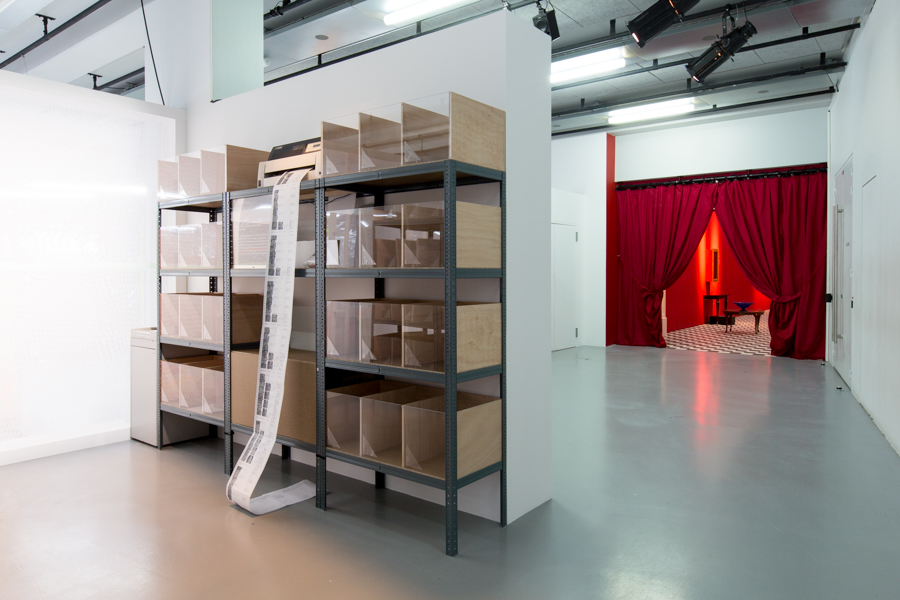
Tobias Zimmer and David Ebner, Database, 2014. Exhibition view at Gaîté Lyrique. Photo: © Vinciane Verguethen/voyez-vous
The cameras of the Database installation record the faces of visitors as they enter the room, a recognition algorithm analyzes them and the resulting data is sent to a printer, which automatically prints the little portraits along with data about the time of the visitor’s passage in the gallery. The process is super fast. Every hour though, the intrusive work acknowledges the right to privacy by blending all the faces into a composite portrait and displaying it on the installation’s website, while all other digital records are deleted. As for the ridiculously voluminous prints, they get shredded.
Database publicly documents the nuts and bolts of facial recognition—which governments and large corporations keep behind closed doors—and also refuses to catalog or monetize the information accumulation, in stark contrast with other entities that collect big data.
Semiconductor, Magnetic Movie, 2007
In Semiconductor’s Magnetic Movie, physicists from NASA’s Space Sciences Laboratory at UC Berkeley describe their experiments about magnetic fields while images visualize this invisible phenomenon in the form of hectic, ever-changing geometries.
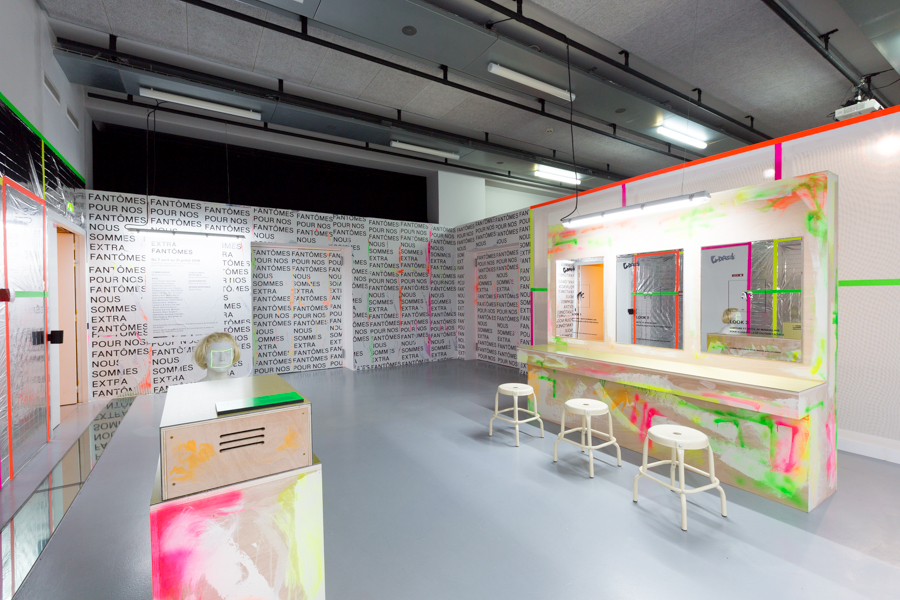
Extra Fantômes. Exhibition view at Gaîté Lyrique. Photo: © Vinciane Verguethen/voyez-vous
The last room in the exhibition bears the inauspicious title of ‘the Bunker.’ There’s nothing oppressive about it though. The space is filled with ideas and strategies deployed by artists to fight back against data collecting, machine scrutiny and other forms of control. They make us disappear and even turn us into ghosts in the eyes of the machines.
There’s a very straightforward way to make yourself untraceable. Head over to the website of LessEMF and get a maternity camisole, sleeping bag or poncho that will protect you from electro-magnetic fields. My personal choice would be this fetching upper body shield which might come in handy next time i fancy a bit of jousting.
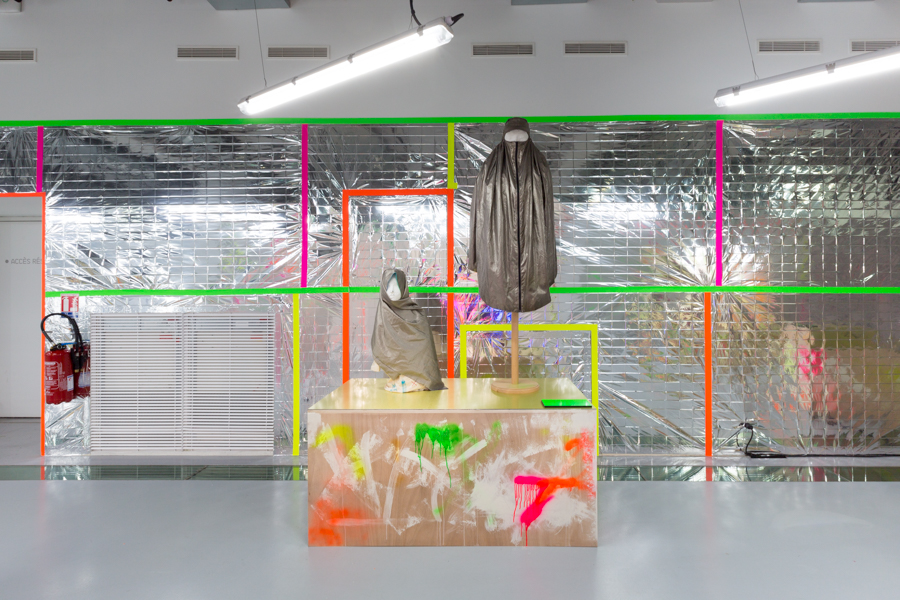
Extra Fantômes. Exhibition view at Gaîté Lyrique. Photo: © Vinciane Verguethen/voyez-vous
Adam Harvey designed a range of fashionable thermal evasion garments that protect their wearer from the eyes of the drones and other heat sensing machines.
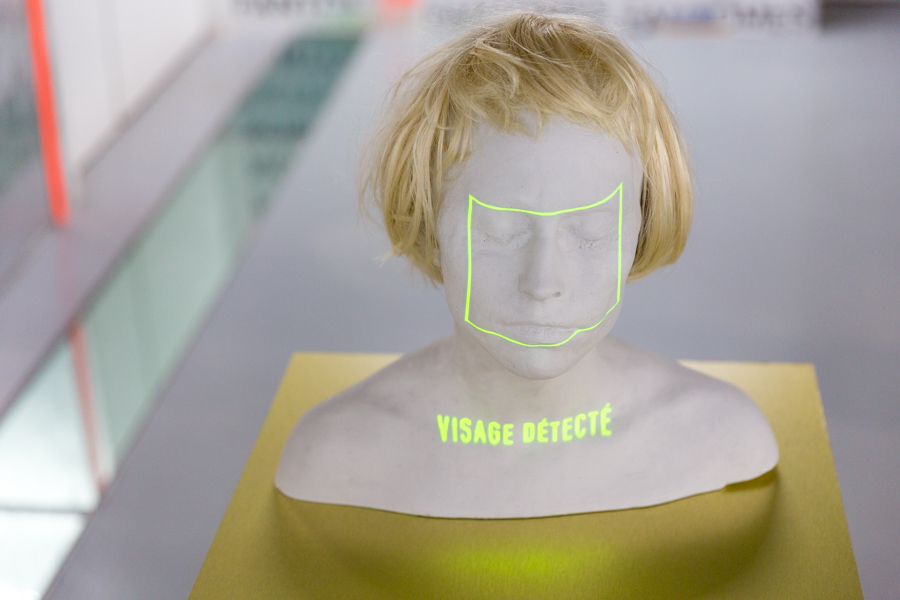
Extra Fantômes. Exhibition view at Gaîté Lyrique. Photo: © Vinciane Verguethen/voyez-vous
The artist and researcher is also famous for CV Dazzle, a sly make up and hair fashion technique that covers the face with bold patterns. By breaking apart the expected features targeted by computer vision algorithms, CV Dazzle makes you immune to CCTV scrutiny.
Heather Dewey-Hagborg, Invisible
Finally, Heather Dewey-Hagborg has been exploring the next frontier in surveillance: biological surveillance. Her Invisible kit ensure your genetic privacy by obliterating any DNA trace you leave behind.
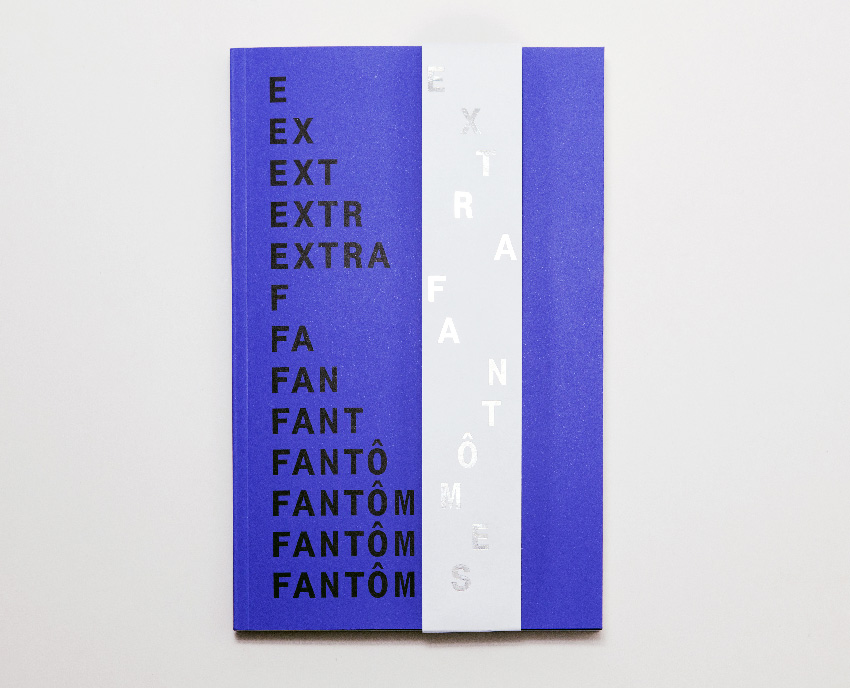
Catalogue Extra Fantômes
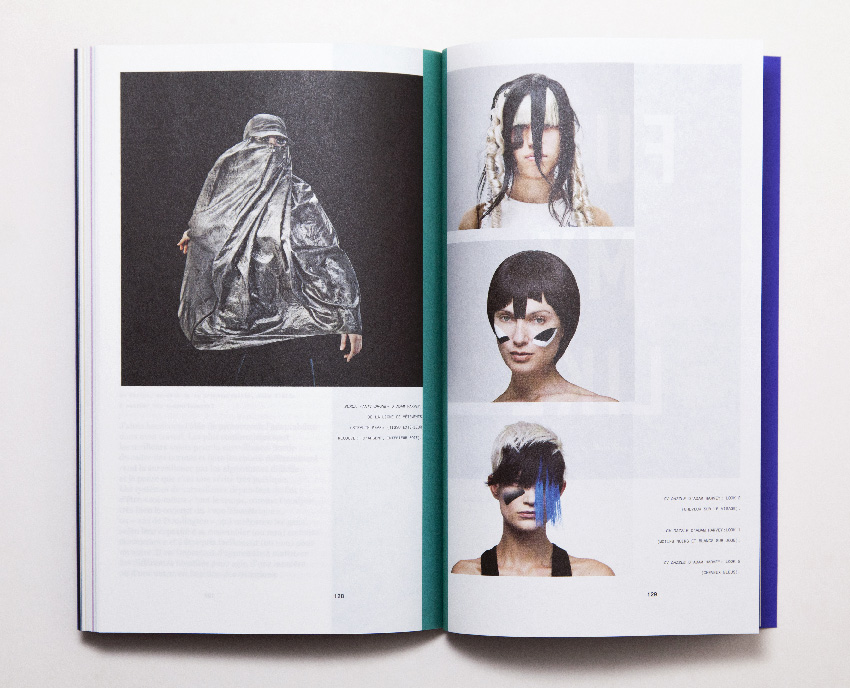
Catalogue Extra Fantômes
The catalogue of the exhibition is published by Gaîté Éditions and Lienart. It contains plenty of great essays by the like of James Bridle, Finn Brunton, Vinciane Despret, Marie Lechner, Elliot Woods (Kimchi and Chips), Mushon Zer-Aviv, etc. Only available in french, i’m afraid.
More images from the exhibition:
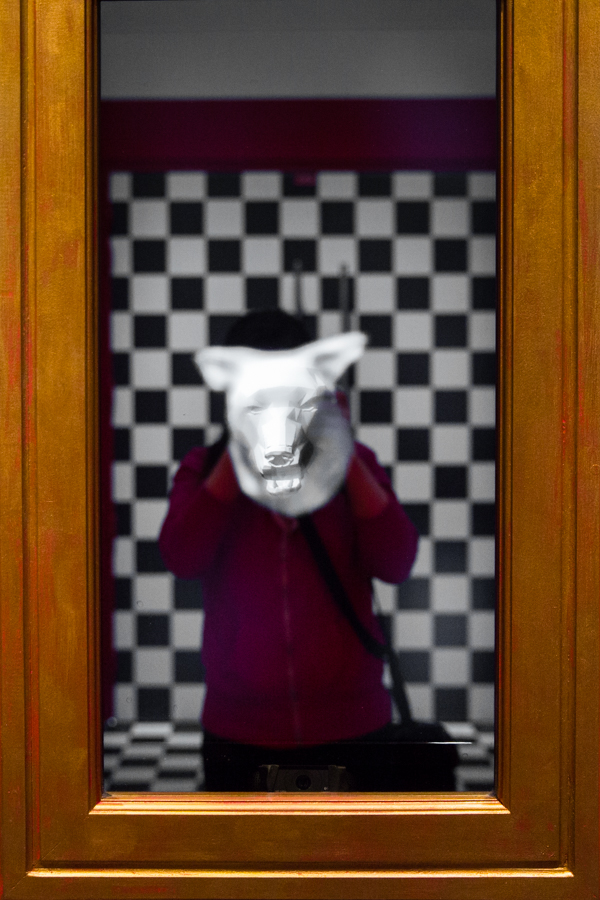
Karolina Sobecka, All the Universe is Full of the Lives of Perfect Creatures. Exhibition view at Gaîté Lyrique. Photo: © Vinciane Verguethen/voyez-vous
Mathieu Schmitt, Oui Ja, 2013
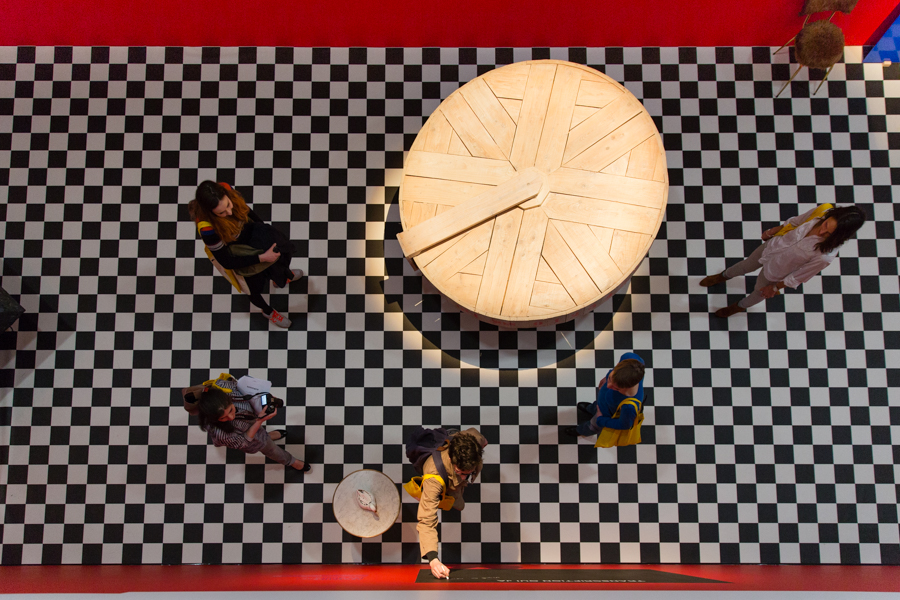
Mathieu Schmitt, Oui Ja, 2013. Exhibition view at Gaîté Lyrique. Photo: © Vinciane Verguethen/voyez-vous
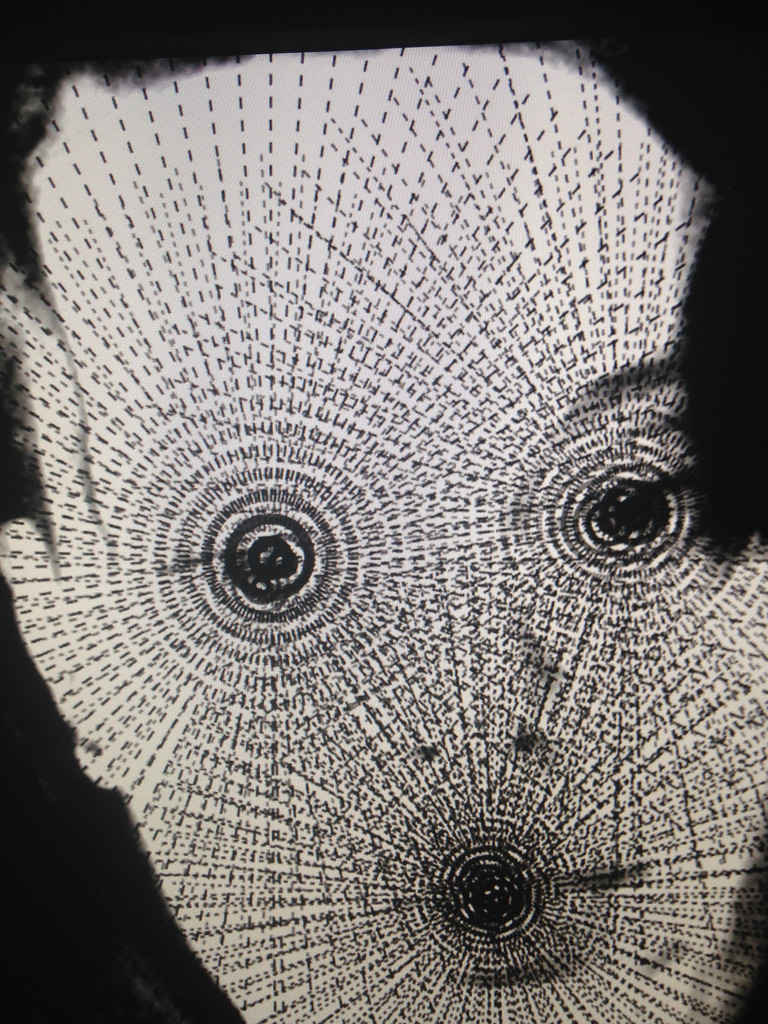
Malte Martin, Spectres, 2014
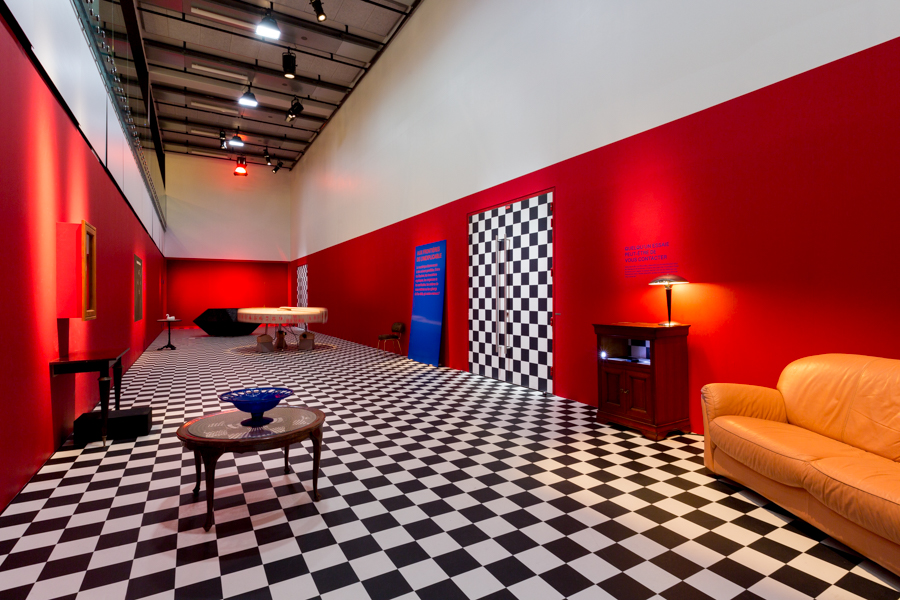
Exhibition view at Gaîté Lyrique. Photo: © Vinciane Verguethen/voyez-vous
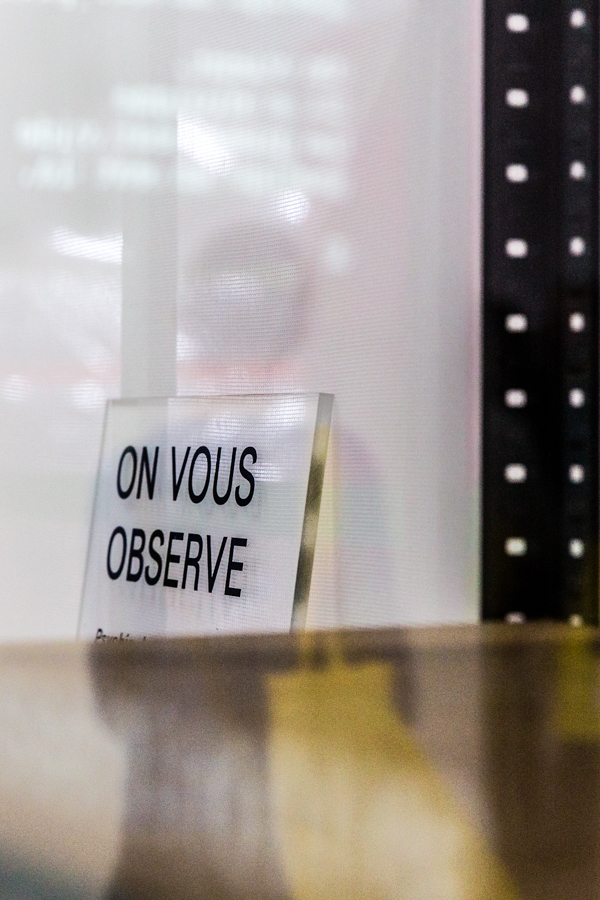
Extra Fantômes. Exhibition view at Gaîté Lyrique. Photo: © Vinciane Verguethen/voyez-vous
Extra Fantômes. The real, the fake, the uncertain was curated by Daily tous les jours. The show remains open at Gaîté Lyrique in Paris until July 17th 2016.

